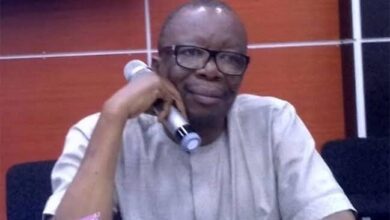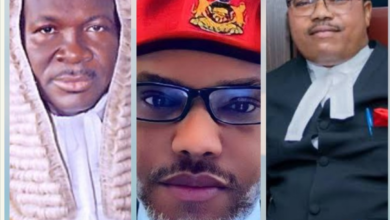Resident Doctors To Escalate Strike As FG Issues “No Work, No Pay” Directive

Resident Doctors To Escalate Strike As FG Issues “No Work, No Pay” Directive
The Nigerian government has directed the management of Federal tertiary hospitals to commence the enforcement of the “no work, no pay” policy against the striking resident doctors.
The striking doctors, members of the National Association of Resident Doctors, have, however, remained adamant, insisting the government has no moral justification for its action.
The directive was contained in a letter dated 1 August and titled “Re: Incessant Strike Action by the Nigerian Association of Resident Doctors: Implementation of “No work, No pay” policy of the Federal Government.”………………………………..CONTINUE READING
Directives
In the letter, the government expressed disappointment that the doctors initiated the strike despite attempts at conciliatory meetings involving various stakeholders, the Secretary to the Government of the Federation, and the National Assembly, all of which proved unsuccessful in reaching an agreement.
It instructed the hospitals to implement the ‘no work, no pay’ policy and also keep an attendance register for resident doctors who are willing to continue working despite the strike.
“I am directed to inform you that the Federal Ministry of Health has instituted the policy of “No work, No Pay” against the striking resident doctors in line with circular Ref. No.58598/8.1/II/182 dated June 22, 2016,” the letter read in part.
“I am further directed to request you to maintain an attendance register for all residents willing to work and furnish the ministry of such names on a monthly basis.”
No work, No pay policy
Under Nigerian law, workers’ unions on strike are typically entitled to their full salaries. However, the Government can invoke the “no work, no pay” rule if it deems the strike illegal or unjustified.
Historically, this rule has been rarely enforced and has often been reversed once the strike is called off or suspended.
Adamant NARD
Speaking with PREMIUM TIMES on Thursday night, the President of the Nigerian Association of Resident Doctors (NARD), Emeka Orji, said the doctors are going to escalate the strike beginning next week.
See the Full Clip Here
Mr Orji said the health ministry has failed to resolve the issues.
“Well it’s unfortunate that the federal ministry of health that has done a very poor job is trying to shift blame for their failures to other ministries and trying to say that because they don’t have a substantive Minister they can’t do anything,” he said.
“They are now developing the capacity to think that the best thing to do is to start implementing punitive measures.”
He said the association held its national leadership committee meeting Friday and NEC will also meet over the weekend.
“Things are going to escalate by next week, people are really angry, doctors are angry. They are angry that the government has not resolved any of the issues placed on the table and then the Ministry of Health is thinking along the line of punitive measures,” he said.
Mr Orji said “From Monday there will be a level of escalation that they will not imagine. it’s unfortunate that we have gotten to that point. But they called for it and, I know our members will respond.”
Doctor’s strike
The resident doctors embarked on an indefinite industrial action on 26 July following what they described as the failure of the Nigerian government to meet their demands.
The doctors are demanding, among other issues, the immediate payment of the 2023 Medical Residency Training Fund (MRTF), tangible steps on the “upward review” of the Consolidated Medical Salary Structure (CONMESS), and payment of all salary arrears owed its members, since 2015.
The doctors also want immediate massive recruitment of clinical staff in the hospitals and abolishment of the bureaucratic limitations to the immediate replacement of doctors and nurses who leave the system.
They also want the immediate review of hazard allowance by all the state governments as well as private tertiary health institutions where any form of residency training is done.
PREMIUM TIMES reported how the strike is disrupting health services in health facilities in Lagos and Abuja, Nigeria’s capital city.
The resident doctors comprise the bulk of medical personnel in Nigeria’s tertiary hospitals; hence health activities are mostly crippled when they are on strike.





